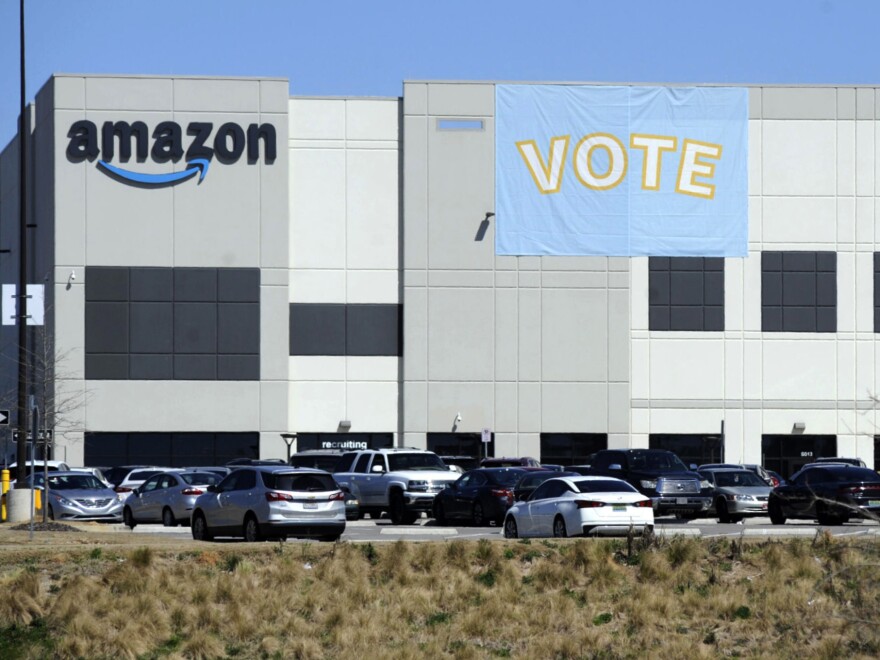It could have been the first unionized Amazon warehouse in America. Now, three years later, workers are waiting to learn whether they'll get a third shot at a union election.
A sweeping, monthslong hearing begins on Thursday to decide the fate of the unionization campaign at Amazon's facility in Bessemer, Alabama. An administrative law judge at the National Labor Relations Board (NLRB) will review the company's and the union's conduct in the last election, which has remained too close to call since 2022.
As the COVID-19 pandemic peaked, labor organizers collected enough signatures from Bessemer workers to garner the very first union election at an Amazon warehouse. Union supporters advocated for longer breaks, more health and safety measures, higher pay and better benefits. Celebrities, lawmakers and even President Biden expressed solidarity.
But in the spring of 2021, workers voted more than 2-to-1 against joining the Retail, Wholesale and Department Store Union (RWDSU). Later, U.S. labor officials ruled that Amazon improperly influenced the vote, particularly by placing a mailbox for ballots in an Amazon-branded tent in a surveilled parking lot.
The remedy was a do-over.
A full year after the first go, Bessemer warehouse workers voted again on unionizing in March 2022. Because too many ballots were challenged by either Amazon or the union, and because the wheels of the labor legal system turn slowly, that election remains unresolved to this day.
What happens starting Thursday
Now, the NLRB judge will review the 311 ballots that are still uncounted. Both sides have filed other objections to the vote, accusing each other of breaking rules. The judge will consider that too.
Also on the agenda is an order by a regional NLRB director issued last year. It alleges that Amazon had violated labor laws, including by interrogating, surveilling and threatening pro-union workers, plus setting "overly broad" restrictions on workers' access to the warehouse in their off hours.
Witnesses will begin to testify on Monday and continue into July.
What the judge decides could either establish the outcome of the last union election or set that election aside in favor of yet another do-over. Given high turnover at Amazon warehouses, this rerun would be the first time many current workers would have a chance to vote.
The union, RWDSU, did not comment on the hearing. An Amazon spokesperson, Mary Kate Paradis, said: "Our team at [the Bessemer warehouse] has already made their choice clear, twice — the RWDSU should respect their voices. We look forward to defending this position as the legal process continues."
The company earlier this year argued that the structure of the National Labor Relations Board itself is unconstitutional.
Since Bessemer's original union vote, the upstart Amazon Labor Union made history in Staten Island, N.Y., forming the first unionized Amazon warehouse in 2022. The union went on to achieve two other elections in New York but lost in both of them.
Two years later, Amazon has not begun bargaining with the unionized workers. It does not recognize the union and continues to legally challenge its victory, arguing unions were not the best choice for, or the preference of, most employees.
Editor's note: Amazon is among NPR's recent financial supporters.
NPR's Andrea Hsu contributed to this report. contributed to this story
Copyright 2024 NPR. To see more, visit https://www.npr.org.



